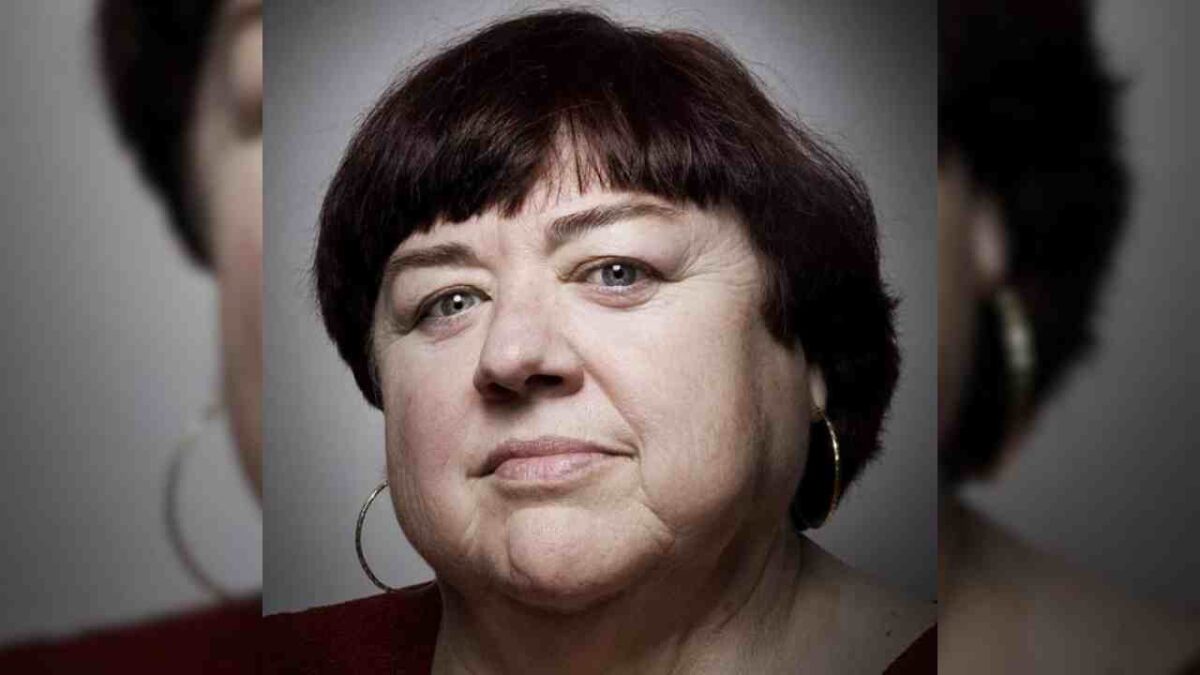On December 20, Lee Lakeman, one of Canada’s greatest feminists passed away after weeks in palliative care. I met Lee when I was President of the National Action Committee on the Status of Women (NAC) in the early 1990’s. NAC was an extraordinary coalition of women’s groups and women’s committees from unions and churches. Pretty much every feminist group in the country was a member and there were many differences. Lee represented Rape Relief one of the most radical groups.
Several people warned me that Lee was impossible to work with but feminist performance artist Louise Garfield from the Clichettes told me not to listen to the warnings and to get to know Lee who was a warm and loving friend. So I did.
Lee established one of the first women’s shelters in Canada in the early 1970’s by moving into her basement with her son and opening the rest of her house to women fleeing male violence. She later joined Rape Relief in Vancouver, probably the most radical activist anti-male violence group in the country. Rape Relief is a collective but as in many collectives there are still leaders and Lee was one. Her story in Ten Thousand Roses, my oral history of the feminist movement in Canada tells of a group of women who struggled with direct action and going to court, who hired any woman who wanted to work there and stayed very grass roots, refusing government funding so that they wouldn’t get co-opted.
Lee’s interview in my oral history of feminism in Canada Ten Thousand Roses: The Making of a Feminist Revolution tells some of that story:
“The Rape Relief collective was also in constant debate about whether or not we should assist the state in jailing men, and under what circumstances. A number of women split with us over that..It is perfectly acceptable for me to support a woman in taking a man to court and giving the court material to convict him, and at the same time I can fight for better and more just sentences. But in those days it was either or.”
Rape Relief also was one of the first groups to take a tough position against trans women working as counsellors or even volunteers in their group. In 2000, I testified in a famous BC Human Rights case—that of Kimberly Nixon, a trans woman who was rejected by Vancouver Rape Relief as a volunteer because she wasn’t born female. Nixon is today seen as a pioneer and a hero of the trans movement. I didn’t agree with the argument Vancouver Rape Relief made at the time, but I did think that they should be able to decide their volunteer criteria, given that they work with traumatized women.
I came to disagree with Lee on her view that trans women do not belong in the feminist movement at all and that ruined our friendship but my admiration for Lee and her activism remains. Lee’s last piece of writing was to respond to me on the trans issue but even that article was respectful.
My favourite memory of Lee is when we were fighting together for a stronger rape law. In 1991 the Supreme Court had struck down the Rape Shield Law because of the section that made it illegal for the defense to question the victim on her sexual history. Kim Campbell, then the Justice Minister in Brian Mulroney’s government, was desperate to bring in a new law as soon as possible. NAC was invited to meet with the Minister and we invited activists in the anti-violence movement, including Lee to be part of that meeting. Our first meeting was with the bureaucrats including the Deputy Minister. We wanted consent defined in the new law. The bureaucrats said they agreed it would strengthen the law but that there wasn’t time to work it out and the Minister wanted to move quickly. Lee asked the bureaucrats to leave so that we could discuss among ourselves. I couldn’t believe her nerve to ask the Deputy Minister to leave a meeting he had organized but I supported her and they did. We decided to push the Minister to our amazement, she agreed to change the draft the bureaucrats had written in consultation with the LEAF, the feminist legal group who was also at the meeting.
I wrote her while she was in palliative care and she wrote back with love and appreciation. That was Lee. Even while dying she wrote: “I have a lot to say but not much time to say it in. I found and find the divisions between us painful, exciting, interesting and important. But of all the things I could say, I want to communicate what a great friend you were to me at key moments in my life.” And I hope I communicated the same to her. Whatever our differences, I know that Lee fought ferociously her whole life for a better world for women. I will cherish her memory.



